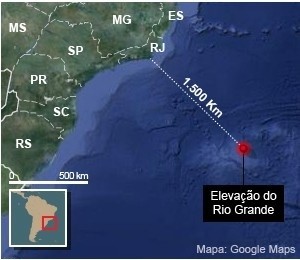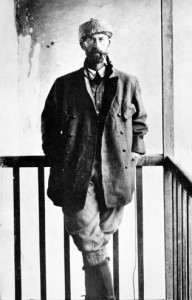David Grann
Brazil
Brazil was arguably (re)discovered by the Pinzon brothers, before Columbus first reached the West Indies according to Steven Sora(g).
Brazil has had few serious investigators propose it as the location of Atlantis. Although, in 1947 Harold T. Wilkins claimed[0363.97] that Quetzalcoatl was from Atlantean Brazil. Earlier in the 20th century, Col. P.H. Fawcett, the famous explorer, disappeared while searching in the Brazilian rain forest for a ‘lost city’ that he called ‘Z’. A 2009 book by David Grann about Fawcett’s searches in Brazil, entitled The Lost City of Z [0772] was the basis for a film released in 2016. Sprague de Camp listed[0194.329] a George Lynch supporting a Brazilian Atlantis in 1925. In fact, Lynch was a fund-raiser for Fawcett.>However, the Atlantisforschung website is adamant that there is no evidence that Lynch favoured Brazil as the location of Atlantis(i)!<
However, although there is growing evidence of ancient roads, plazas and bridges in Brazil’s vast tropical forests, further data is needed before we can attempt to fit these structures into any specific culture or chronology.
An article(e) in the August 2017 edition of Antiquity offers evidence that humans lived in Brazil more than 20,000 years ago, which is many millennia before the Clovis people arrived in North America.
>Americo Huari Román is a Peruvian electrical engineer who was born in the former Inca capital of Cuzco. He is the author of La Atlantida y el Imperio de los Incas (Atlantis and the Empire of the Incas) [1448]. Before the Great Deluge, Huari claims that most of central Brazil had been a huge inland sea and that Atlanteans and Arawacs lived around this lake and that the one artefact left by them is the enormous carved Ingá Stone(j).<
The possibility of Phoenician contact with Brazil has a number of supporters and a range of websites supports this controversial view(a). One such advocate, Ronald Barney, maintains[1185] that they concentrated their influence in the northeastern region of the country citing the work of Ludwig Schwennhagen[1550] and Apollinaire Frot(f). There would appear to be evidence for 3rd century AD Roman contact with Brazil(h).
 May 2013 saw a flurry of media interest when a Japanese submersible found evidence in the form of granite suggesting of a previously unknown continental mass that sank about 900 miles off the coast of Rio de Janeiro. Members of the expedition have played down any attempt to link this discovery with Atlantis(b)(c).
May 2013 saw a flurry of media interest when a Japanese submersible found evidence in the form of granite suggesting of a previously unknown continental mass that sank about 900 miles off the coast of Rio de Janeiro. Members of the expedition have played down any attempt to link this discovery with Atlantis(b)(c).
This reminiscent of the reaction in 1931 when two islands were reported to have emerged from the sea off Brazil and within a short time, claims that they were a returning Atlantis were widely quoted(d).
Any suggestion that the land of Hy-Brasil in Irish mythology has any connection with Brazil or Atlantis is just wild speculation.
(a) https://phoenicia.org/brazil.html
(c) https://www.counselheal.com/articles/5276/20130507/scientists-found-atlantis-coast-brazil.htm
(d) https://trove.nla.gov.au/ndp/del/article/98134066?searchTerm=Atlantis&searchLimits=
(e) https://www.sciencenews.org/blog/science-ticker/stone-age-people-brazil-20000-years-ago
(g) See: Archive 3480
(h) https://mysteriousuniverse.org/2019/05/the-mysterious-ancient-underwater-roman-relics-of-brazil/
(i) George Lynch – Atlantisforschung.de (atlantisforschung-de.translate.goog) *
Fawcett, Percy Harrison
Colonel Percy Harrison Fawcett (1867-1925?) was a retired military engineer with a great interest in archaeology. Fawcett, who published a number of articles in The Occult Review, believed in the existence of Atlantis and was convinced that he could find a remnant of its advanced population(c). Inspired by stories of lost cities in the Amazonian jungle he was convinced that Brazil had been the home to a city that had been a colony of Atlantis. His ambition was to discover the location of this city, which he referred to as ‘Z’, and so prove the reality of Atlantis.
stories of lost cities in the Amazonian jungle he was convinced that Brazil had been the home to a city that had been a colony of Atlantis. His ambition was to discover the location of this city, which he referred to as ‘Z’, and so prove the reality of Atlantis.
>An article(e) by Francisco Lago on The Great Web of Percy Harrison Fawcett has claimed that in fact what Fawcett was seeking in Brazil was a city founded by Greeks! He adds that “the search for Atlantis was just a plausible publicity way to collect funds”!<
Alan Baker recounts[1031.121] how in 1924 Fawcett wrote to Lewis Spence outlining his theory that this lost city had been home to white-skinned refugees from Atlantis. Undaunted by an earlier failed expedition, in 1925 he led a second attempt, partly sponsored by the Royal Geographical Society, into the Matto Grosso and disappeared without trace(a). A book by David Grann, The Lost City of Z, was published[772] in 2009. There is a film produced by and starring Brad Pitt as Fawcett and his search for Z on release now (2017) and also entitled The City of Z.
The Russian researcher, Oleg Dyakonov, has written an extensive paper(d) on Fawcett, his expeditions, achievements and his critics. It is in Portuguese, but translates well with Google.
(a) The Great Unknown, The Great Explorers (archive.org)
(b) https://www.guardian.co.uk/world/2010/jan/05/amazon-dorado-satellite-discovery
(c) https://archive.archaeology.org/online/features/hoaxes/fawcett_idol.html
